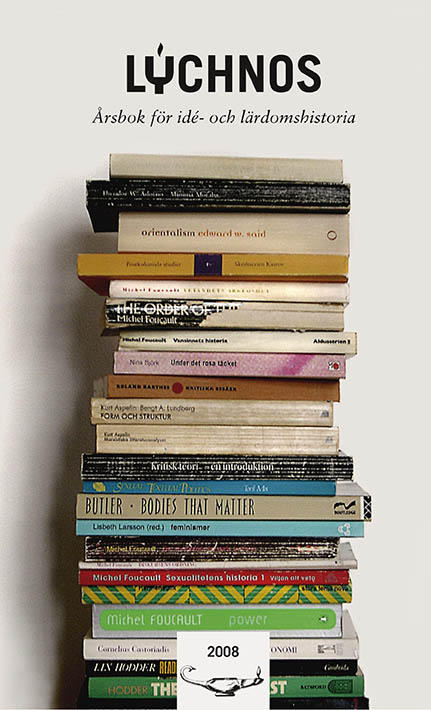Den fransktalande rasen
Frankofonins fader Onésime Reclus och l’Organisation internationale de la francophonie
Abstract
In this essay, it is suggested that the prevalent benign interpretation of the 19th century French geographer Onésime Reclus serves to legitimize the historiography of the modern institution of francophonie, the Organisa- tion Internationale de la Francophonie, OIF.
The term francophonie was coined in 1880 and was picked up in the 1960s by Léopold Sédar Senghor in his call for an international organisation of French-speaking countries. Despite the fact that Reclus is often mentioned as being one of founding fathers of francophonie, attention has only briefly been paid to his writings. The prevalent interpretation of Reclus’ writings in the literature on francophonie suggests that he was radical in his rejection of the racist ideas of his time.
Onésime Reclus’ writings however contain a tension between seeing man as determined by an acquired and hence contingent language on one hand, and a rather biologistic and deterministic approach, according to which origin and race are decisive, on the other.
Two different backgrounds are discussed in order to contextualize a modified interpretation of Reclus’ writings. First, the emerging philology or discipline of comparative linguistics of the 19th century, which sheds light on Reclus’ idea of language as a manifestation of a people’s supremacy or inferiority. This perspective indicates that his concept of language sometimes should be understood as a race-specific property.
Second, the politico-linguistic discussion during the French revolution, especially the linguistic poll and political measures suggested by Abbé Grégoire, is offered as a background to the universalistic aspects of the concept of francophonie.
These two backgrounds establish links between Reclus’ ideas and the linguistic-racial thought of his time. It also situates his work in a tradition of ideas legitimizing the dissemination of the French language by the values supposedly transmitted by it.
Downloads
Publicerad
Nummer
Sektion
Licens
This work is licensed under a Creative Commons Attribution 4.0 International License. The copyright for the work published in Lychnos remains with the authors.


